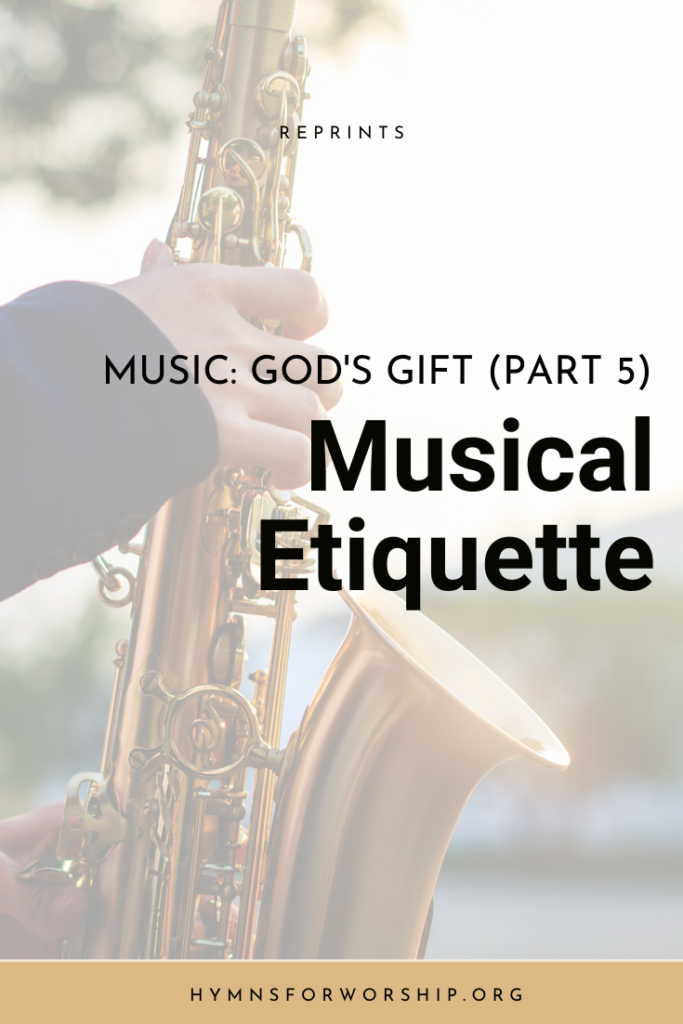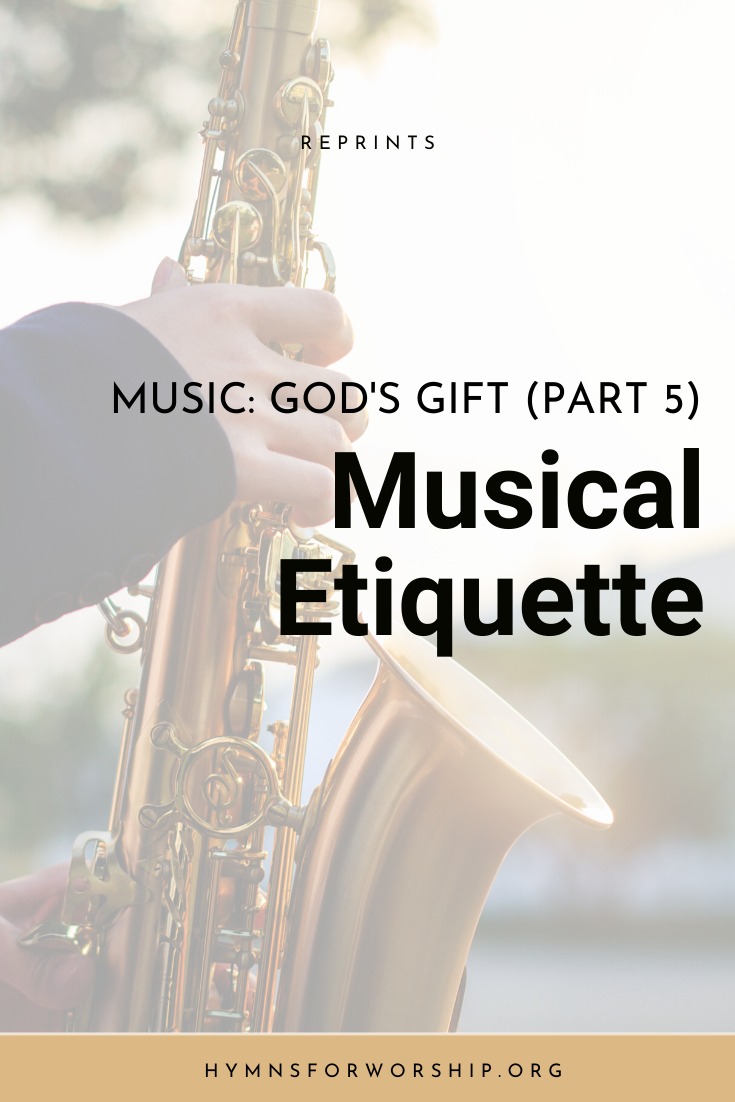It was the common custom of Johann Sebastian Bach to begin each one of his musical compositions with the Latin phrase Soli deo gloria — to God alone be the glory. This was done not out of pious custom. It was because of an overwhelming conviction that what he had composed was chiefly offered to God.

In part, it was for the edification and inspiration of the people of God. But his music was mainly a means of adoration, praise, and thanksgiving. In any discussion about the role of music in church, it is imperative that this thought be foremost at all times.
One of the things that can allow music to be done for the glory of God is through an observation of musical etiquette. As a member of the congregation or a musician for your local church, what do you do in the situations mentioned below?
Musical Etiquette Advice for the Congregation
You do not like the soloist, how do you react?
Give credit for the amount of time spent in preparing the song. Listen courteously and think of the words of the song. Be a blessing to others by not disturbing those around us who are trying to appreciate the rendering.
Discourtesy during the rendering of a vocal item can destroy all the inspiration the singer may have had. Instead, leave a feeling of failure and even bitterness within his or her breast. The singer must find a sympathetic response from the congregation in order to impart a blessing in song. If that link is missing, the performance loses part of its effectiveness.
Couldn’t care less about the organ music? At the very least, show appreciation.
Organists make the worship an uplifting experience. Show appreciation by allowing them to play uninterrupted. Sudden announcements should not interrupt a beautiful organ prelude. Let the collection of offering commence by giving the organist a chance to find a suitable cadence to bring the voluntary to a satisfactory conclusion.
While a musical number is going on, you have a sudden urge to walk or whisper. What do you do?
No one would dream of whispering during the prayer. Yet this is sometimes done during the singing of a hymn and during the rendering of a vocal solo. Many of our hymns are prayers and should receive the same respect and reverence.
Refrain from causing a disturbance during any musical performance in our church services, be it through talking, or walking, or unnecessary movement, etc. Teach your children to be courteous during musical items, for they are our future church members and leaders. Remember, children will copy their adult examples. So often they are mirrors of ourselves.
Singing, as a part of the religious service, is as much an act of worship, as is prayer.Click To TweetMusical Etiquette Advice for the Musicians
You’re the soloist. Do you just get up there and “perform”?
Show courtesy. Wait until the audience is ready to respond to your song. Do not start singing while people are still trying to find seats. Remember you are not displaying your rare talent. At all times, “to God alone be the glory.” If your talent is dedicated to the service of God, you will be a blessing to others.
Look up from your music. Sing without fear or hesitation, as this will be conveyed to the congregation.
Do not just utter beautiful sounds, but think of the meaning of the words of your song. Let your whole performance be to the glory of God and not to the glory of men.
Be well prepared. A slap-dash performance is not to the glory of God and is a discourtesy to the listener.
You’re the music coordinator. But you get busy with other stuff. So you’re used to assigning parts the last minute.
Plan well in advance with regard to any special music required. It is unfair to expect a last minute request for a song or any other musical item to be rendered properly.
Maybe, musicians would turn down any last minute requests? This may help to educate program organizers to prepare sufficiently in advance. No person can give of his best when insufficient time is allowed for essential preparation and practice.
At all times, “to God alone be the glory.” If your talent is dedicated to the service of God, you will be a blessing to others.Click To TweetHave mercy on an unsuspecting accompanist who suddenly has a hitherto unseen piece of music thrust in front of him or her, with the command to play it! As it is, the accompanist is often blamed when the fault lies with the singer. God cannot accept anything but our best — our best must take time and sacrifice.
It was the purpose of this article to try to point out some of the things which mar the reverence of our church services, as far as the offering of music is concerned. We are probably familiar with the quotation from Patriarchs and Prophets, (p. 54) which reads:
Music forms part of God’s worship in the courts above, and we should endeavour, in our songs of praise, to approach as nearly as possible to the harmony of the heavenly choirs. Singing, as a part of the religious service, is as much an act of worship, as is prayer.
Let us all strive to reach this standard.
The following article is rephrased from Wilhelmina Dunbar’s article, “Music — God’s Gift (Musical Etiquette).” Taken from the August 15, 1969 issue of Trans-Africa Division Outlook.The original can be found at the Adventist Digital Library website.
Like this article? Share it!

